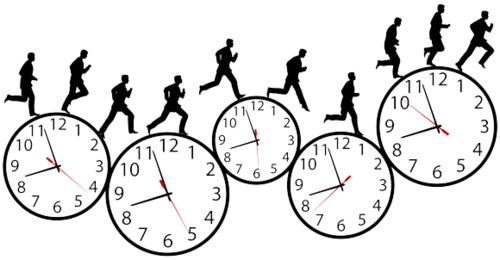As a busy higher degree research student one feels that they never have enough time to get to their research, particularly the writing part. And that other things like work, administration, committees, emails, project management, life etc demand all the time. This workshop conducted by Hugh Kearns shows how to guarantee that one spends high quality time on their research outputs. It covered the prioritising, goal setting and managing competing demands in a university context.
Date: Wednesday 1 June 2016
Time: 2pm – 5pm
Location: Lecture theatre S9, 16 Rainforest Walk, Clayton
The session first explored the various patterns of unproductive behaviour in a researcher’s life. These included procrastination, overcommitting themselves, never saying NO, crisis and emergencies (eg. breakdown or grandma sick), getting distracted, perfectionism (for eg. waiting for the free day – clear time slot to start the task) or avoidance (giving reasons like .. “now is not the right time”).
So with guilt, one thinks, “What really gets in the way and how can we overcome these”?
Each one of us has experienced these unproductive behaviour at some point in out lives:
- Procrastination – Yes, this the the black cloud of guilt which you carry. We realise that the task is important, yet we don’t find a motivation to do it. Well, we must realise by now that there is no motivation fairy that exists and has a magic wand to motivate us. So what can we do?
- Solution I: Use the following model: ACTION -> MOTIVATION -> ACTION (action leads to motivation) instead of waiting for motivation .. MOTIVATION -> ACTION (ie. if you feel like doing it, then you will do it)
- Solution II: Set a specific time; Break large task into smaller pieces ; Build in rewards after the task is done (important).
- Perfectionism – there is a fine line between being a perfectionist and being obsessed. It is important to have high standards but it is equally important to know that PhD is a long journey. It never finishes and that why PhDs are bound.
- Solution: Become a selective perfectionist (modify standards as long as it is met). Some things are acceptable only at 100%, others at 80% and some others at 50%.
- The Pareto Principle (80/20 rule) – states that it only takes 20% effort to complete 80% of the task. The next 20% perfectionism requires 80% of effort and time. In such cases, the solution is to set a deadline to conclude the task.(eg. stating that .. I will work on improving this chapter but only till 4pm today).
- Distractions- The life of a student is full of distractions. We believe we can handle many tasks at the same time. But the truth is that we cannot multi-task. We just switch between task quickly. And each time we switch, out mind has to realign the thought process and this affects our productivity level.
- Solution: Do one thing at a time. A good example is people attempting to text and walk.drive at the same time. The truth is that they don’t do a good job in either of the tasks. Think of texting and driving/walking at the same time !!
Real-time Fantasy time – no distractions (phone or email) – do a bit of this and that … 2hr of realtime = approx. 8 hours of fantasy time ** It is advisable to have a dedicated research time/writing slot/ (preferably early in the day)
- Solution: Do one thing at a time. A good example is people attempting to text and walk.drive at the same time. The truth is that they don’t do a good job in either of the tasks. Think of texting and driving/walking at the same time !!
- Overcommitment – We only have 168 hours in a week. Everyone gets the same amount of hours regardless of whether you are a professor or student. The only difference is the commitment we have against it. It is common to get overcommitted by trying to engage in every interesting activity possible. This affects the time available for your research.
- Solution: Regularly check how much you are doing?
- Learn to say NO. A nice way of saying NO is to advise the person that:
- I will check my diary and come come back to you (buy yourself time to think)
- give alternatives
- delegate
- Learn to say NO. A nice way of saying NO is to advise the person that:
- Solution: Regularly check how much you are doing?
- Focus – There is a nice Tedtalk on the Paradox of Choice. The more choice we have around us, the more difficult it becomes to focus on one. For a PhD student, the difficulty is to get the urgency right now because the PhD deadline is 3 years away.
- Solution: Remove the choice and focus on TNT – The Next thing. It (TNT) should be a small, micro or nano task to get your started.
- Getting things done – there is a straight, yet simple approach ( 3D’s) to get things done:
- Do it.
- Diary entry with set time to complete or Delegate
- Ditch it.
The workshop concluded with discussing the circle of influence and the 3 different shades:
- Can control – what you do? how you react?
- Can influence – relationships, your hours, other people.
- Can’t control – university, government policy, what other people do
So, the final take-away from the workshop was to decide on where we should we put our most effort and energy? I hope, the answer is quite obvious after reading the blog. Cheers !!!








